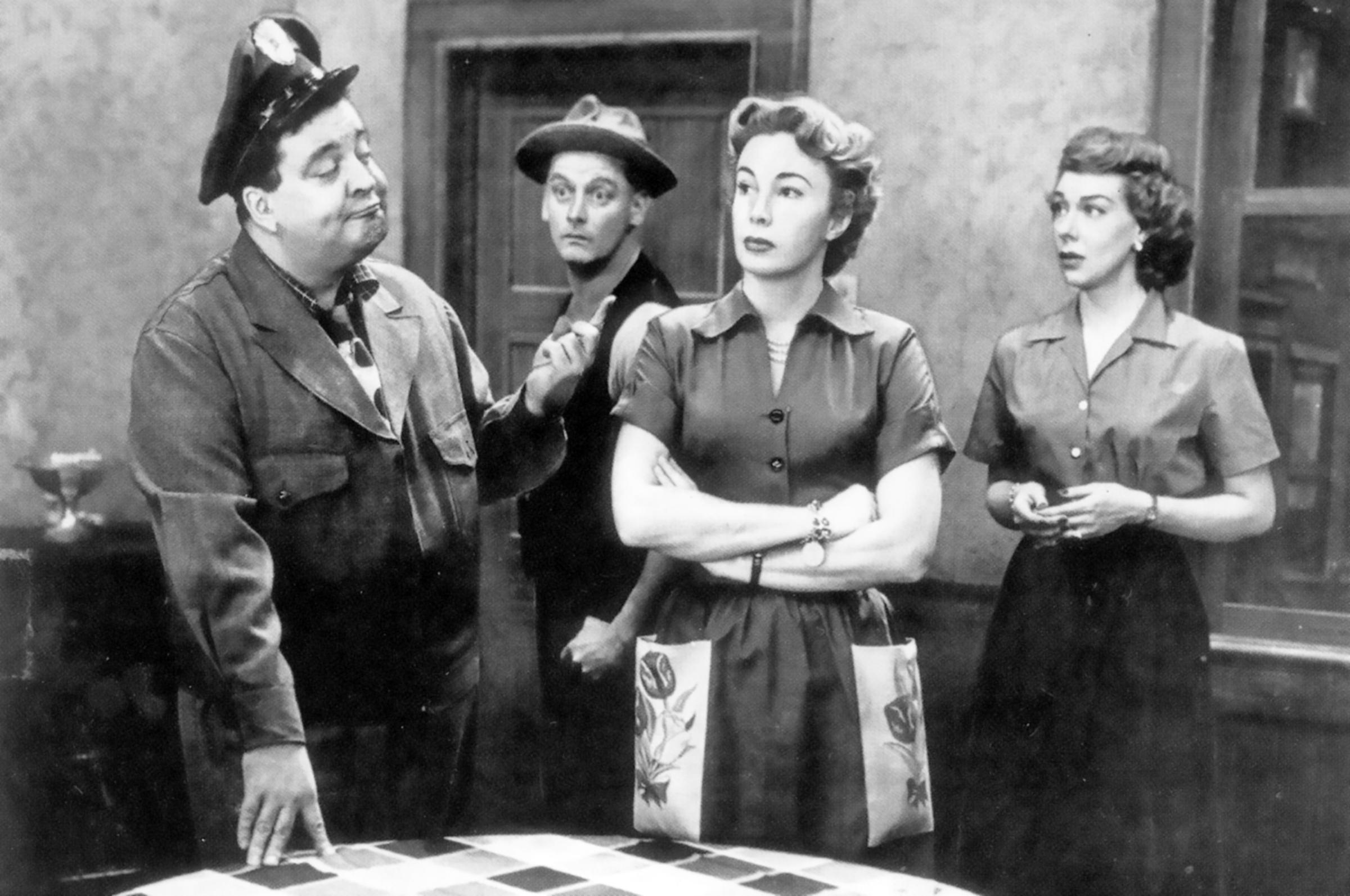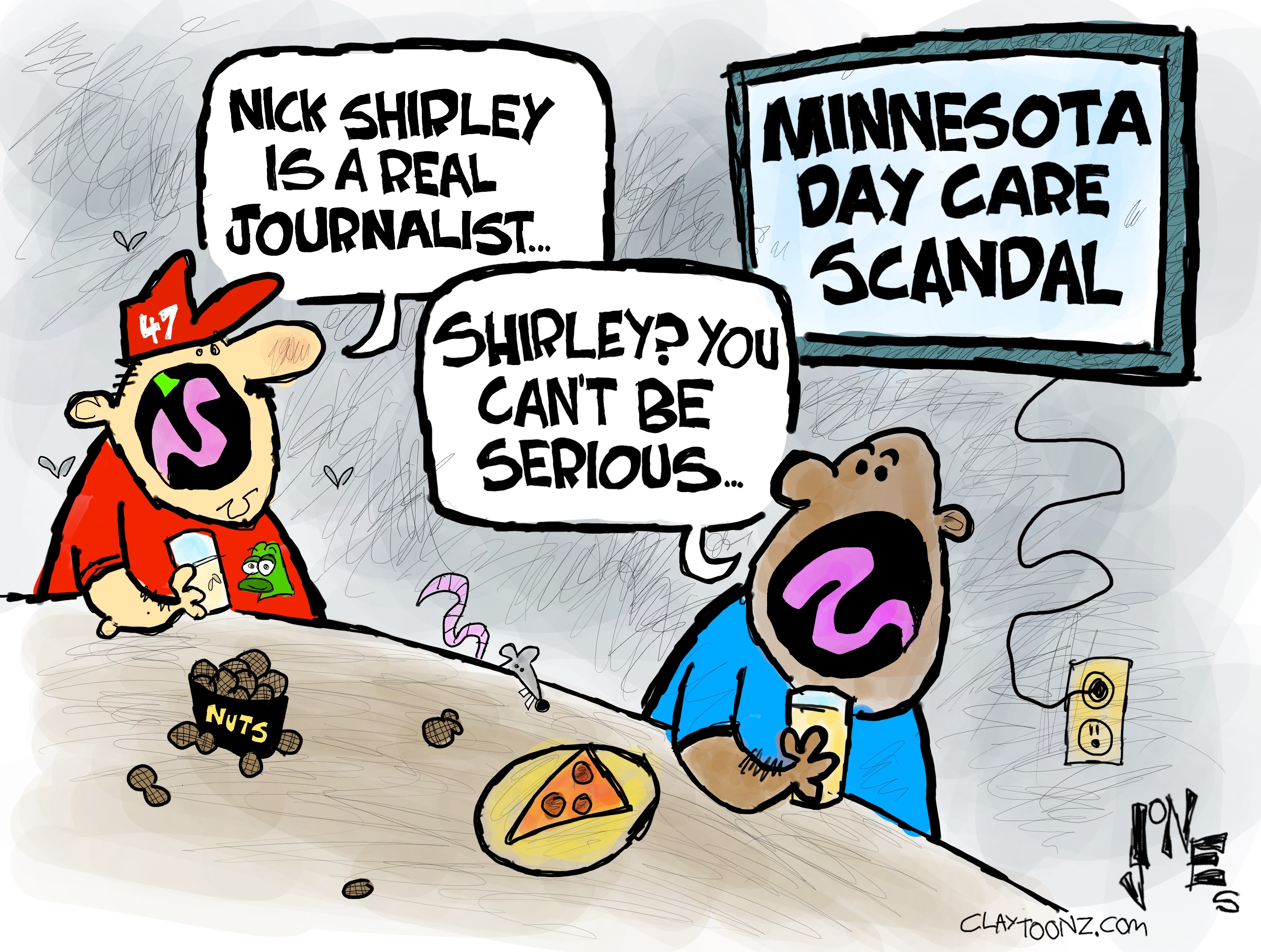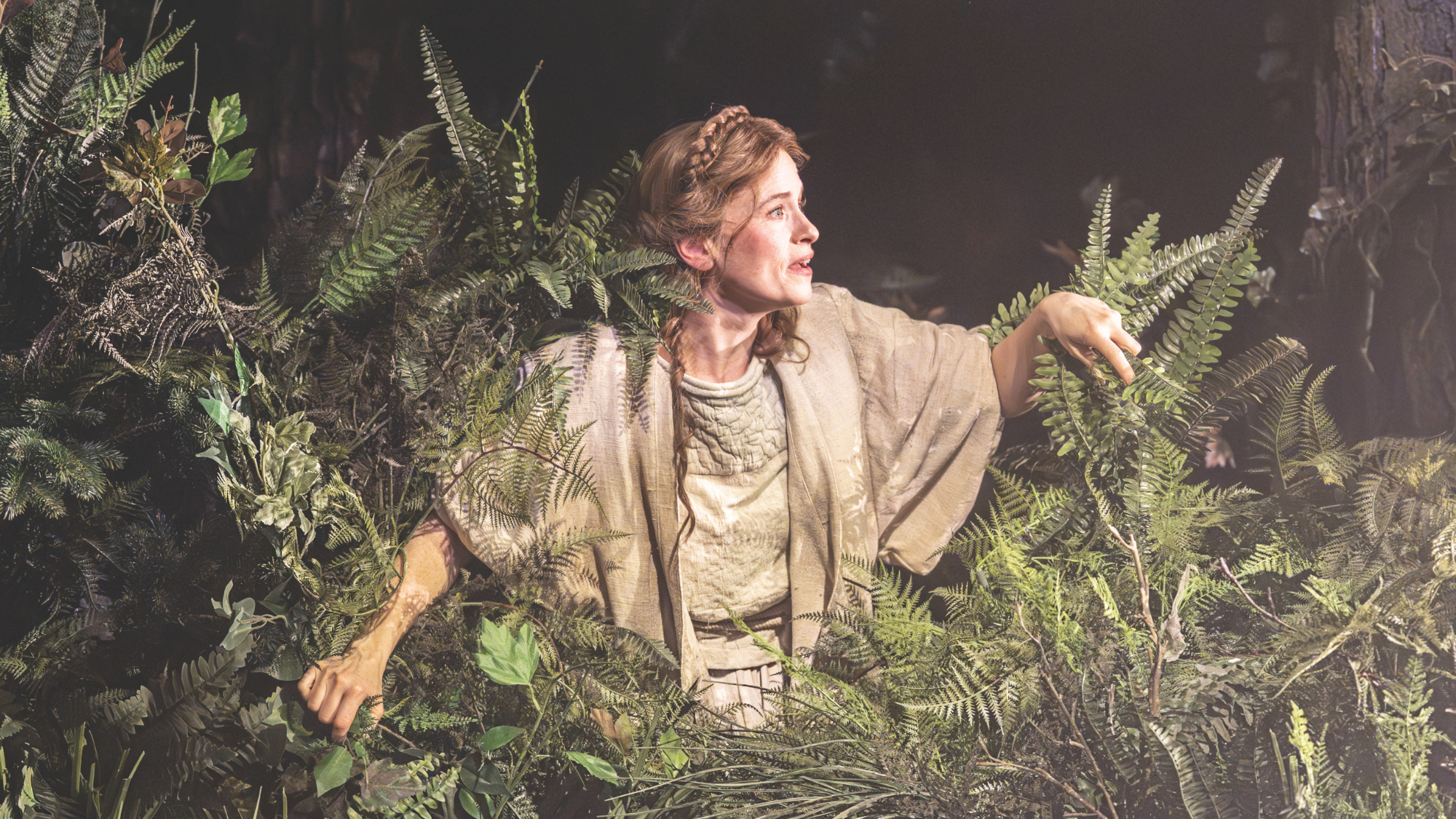TV's callous neglect of working-class America
Has TV forgotten what it's like to struggle?


Back in the 1950s, television audiences tuned in every week to The Honeymooners, and were dropped into the small, spartan Brooklyn apartment of a bus driver and his wife. The early '60s brought a string of hard-hitting urban dramas like Naked City, The Defenders, and East Side/West Side, which showed Americans what was really going on in our mean streets and slums. The '70s saw a boom in earthiness and grime, in sitcoms like All in the Family, Sanford and Son, Barney Miller, and Welcome Back, Kotter, which set stories of blue-collar families and the working poor in rooms with threadbare decor and barely functional utilities. Then in the '80s and '90s we had Roseanne, which captured the cramped clutter of an ordinary lower-middle-class home, and used sardonic humor to face — with at-times painful honesty — the hard trade-offs of work and family for people living paycheck to paycheck.
All of these shows were either critically acclaimed or popular — or both. They were part of a rich and varied television landscape, where suburban affluence and conspicuous wealth were just as widely represented as they are today, but put into context by some starker visions of American life.
Do we have that now?
The Week
Escape your echo chamber. Get the facts behind the news, plus analysis from multiple perspectives.

Sign up for The Week's Free Newsletters
From our morning news briefing to a weekly Good News Newsletter, get the best of The Week delivered directly to your inbox.
From our morning news briefing to a weekly Good News Newsletter, get the best of The Week delivered directly to your inbox.
Consider some of the comedies and dramas of the 2010s that have drawn the most love from audiences, critics, and awards ceremonies: The Big Bang Theory, Scandal, Empire, NCIS, Criminal Minds, Girls, Veep, Louie, Silicon Valley, Transparent, Black-ish, Modern Family, Mad Men, The Good Wife, Homeland, The Americans, Crazy Ex-Girlfriend, You're the Worst, This Is Us, Stranger Things, and Mr. Robot. Money and labor factor into all of those series to varying degrees, but the two are rarely intertwined. When characters talk about their jobs, it's usually in terms of personal fulfillment, not whether they can make enough to pay their bills. When they talk about money, the conversations tend to revolve around the payday as a marker of self-worth, coupled with questions about whether they've become spoiled by privilege. Whenever the heroes don't have enough in the bank to do what they want, it's more that they can't realize their grandest ambitions, not that they have to eat canned soup for a week to afford to keep the lights on.
There are some popular dramas and genre series that touch on the persistent divisions between the haves and have-nots, but they tend to fall into three categories: historical fiction (like Downton Abbey), punchy stories of crime and punishment (like Breaking Bad and Orange Is the New Black), and sensationalistic fantasies (like The Walking Dead, Game of Thrones, and American Horror Story). The best science fiction, horror, police procedurals, and period pieces offer contemporary resonances aplenty, but they're mostly operating in the mode of allegory or metaphor, and not deeply engaging with modern life.
What's even more fascinating are the modern sitcoms that come close to commenting on the 21st-century economy, but then back away. Tina Fey's two shows, 30 Rock and Unbreakable Kimmy Schmidt, fire off jokes and cultural references that seem on the surface like pointed political commentary, but are really just rapid-fire absurdism. Kimmy Schmidt herself is frequently low on funds, and through two seasons so far has had multiple jobs; yet nothing about her predicament is presented realistically. Everything is exaggerated for comic effect. Similarly, Parks and Recreation is set in a quirky Indiana small town that throughout the series is depicted as on the brink of fiscal ruin; yet it is also held up as a kind of fantasyland, where even low-level city employees have enough money to buy extravagant gifts for their friends and for themselves.
It's not to knock any of these shows to say that they don't take place in our much more quotidian world. Realism is hardly a prerequisite for great entertainment. Besides, in many of the cases above, the characters and stories express truth in other ways. (Parks & Rec, for example, is unusually insightful about our political divisions, and about our unreasonable expectations for public servants.)
A free daily email with the biggest news stories of the day – and the best features from TheWeek.com
But when our highest-profile comedies and dramas have no interest in — or perhaps even no understanding of — what really goes on in low-rent office parks, supermarkets, fast food restaurants, un-gated subdivisions, and apartment complexes, then a large chunk of the populace can feel like their voices are going unrepresented in the mainstream media. They've become forgotten, invisible… implicitly told that they're uninteresting, or even alien.
I'm not just talking here about "the overlooked middle American Trump voter," which has been the subject of so many think pieces and belated bits of field reportage lately.
For one thing, the presumption that our "red states" are uniformly right-wing and reactionary is part of the problem with TV and movies today. When Hillary Clinton was struggling to get past Bernie Sanders in the primaries, some of Sanders' celebrity supporters were downright derisive about the states she was winning. (Tim Robbins famously scoffed, "Winning South Carolina in the Democratic primary is about as significant as winning Guam.") The fact is that there were significant numbers of Clinton and Sanders supporters in the states Trump carried in the general election — and of every ethnicity and economic background, too. If those people and the Trump voters were on TV in primetime more often, they might not seem so remote and/or inscrutable, to each other or to the press.
Because the truth is that lower-income middle Americans are on TV all the time. It's just that they primarily show up as participants and contestants in reality shows and game shows. There's more talk about work and money and religious faith on a typical episode of Survivor or The Amazing Race than there is on the average sitcom or drama in 2017. The problem there, though, is that the storytelling tools of reality shows force real people to become characters, with just a few key traits to define them. It's almost like the producers are afraid to push too far whenever the people in front of the cameras start mentioning God or values, as though too much nuance would get in the way of the game. The format encourages monologues — delivered straight into the camera, "confessional"-style — not dialogue.
To be fair, it's not like the non-genre dramas, comedies, and dramedies of the 2010s completely avoid the topic of class struggle. But the ones that do hit the subject head-on tend to be less talked about by critics.
Over the course of the past year the CBS comedy Mom has moved away from eking out jokes from its characters' money woes, but in its first couple of seasons the writers' unflinching engagement with how their heroines lived was a big part of what made the show feel fresh. Even now on the show, Anna Faris' divorced mother of two, Christy Plunkett, juggles waitressing, child-rearing, and Alcoholics Anonymous meetings, all while living in rental properties so small that she ends up sharing a bed with her mother. At its best, the series has made sure that viewers understand that every choice Christy makes has to be weighed against its consequences. To find a better job, she has to go back to school. To re-enroll in college, she has to work less, and make less money. Taking classes and filling shifts at the restaurant take time away from raising her kids and keeping her home neat and tidy. Mom keeps all of that in mind — without forgetting to be funny.
An even better example is ABC's long-running The Middle, which is better than any sitcom since Roseanne at generating jokes from how many of us actually live: In too-small houses where the sink hasn't worked right in months, and where the fridge and pantry are stocked with off-brand foods from a discount store. The title of the show refers to middle America (Indiana, to be exact) and the middle class (with a dad who's a construction foreman and a mom who has a hard time holding on to a succession of low-paying service jobs). But it could also describe how the Heck family feels in their neighborhood, stuck between their high-achieving friends the Donahues and their trashier enemies the Glossners. Harried matriarch Frankie Heck constantly worries that they're sliding closer and closer to becoming the Glossners, even though she deludes herself into believing that if they managed their resources and time better they could live as comfortably as the Donahues.
Compare The Middle to its fellow ABC family comedy Speechless, where the main characters are also framed as lower-middle class, but primarily as a way of making them seem more like proud "outsiders," instead of as a nod to a common economic struggle. One of the reasons why The Middle has been on the air for so long (eight seasons and counting) is that it's relatable. It's the kind of show where when a piece of furniture gets busted, it's still out of commission six episodes later — which sharply reflects the general entropy of modern life. So many Americans are over-scheduled and underfunded, always feeling like we're just one week's vacation and about $20,000 away from getting our lives in order.
That's why one of the most promising new series of the past year has been FX's Atlanta, created by and starring Donald Glover. Ostensibly about how a college dropout hustles to get ahead by managing his drug-dealer cousin's hip-hop career, the show is also refreshingly open about how jobs, money, and leisure are intertwined. Glover's character Earnest Marks is an educated young man from a middle-class background. Throughout the first season, he and his occasional girlfriend Vanessa go from upscale parties and fancy restaurants to the cheap apartment where they each take turns raising their daughter when the other's not at work. Atlanta can be surreal, and it can be satirical, but even at its strangest it's still set in a world where everything is kept in a precarious balance between big dreams and mundane needs.
The more TV acknowledges that this is what most of us face every day, the more we all may understand that a lot more unites us than divides.
Noel Murray is a freelance writer, living in Arkansas with his wife and two kids. He was one of the co-founders of the late, lamented movie/culture website The Dissolve, and his articles about film, TV, music, and comics currently appear regularly in The A.V. Club, Rolling Stone, Vulture, The Los Angeles Times, and The New York Times.
-
 The ultimate films of 2025 by genre
The ultimate films of 2025 by genreThe Week Recommends From comedies to thrillers, documentaries to animations, 2025 featured some unforgettable film moments
-
 Political cartoons for January 3
Political cartoons for January 3Cartoons Saturday's political cartoons include citizen journalists, self-reflective AI, and Donald Trump's transparency
-
 Into the Woods: a ‘hypnotic’ production
Into the Woods: a ‘hypnotic’ productionThe Week Recommends Jordan Fein’s revival of the much-loved Stephen Sondheim musical is ‘sharp, propulsive and often very funny’
-
 Walter Isaacson's 'Elon Musk' can 'scarcely contain its subject'
Walter Isaacson's 'Elon Musk' can 'scarcely contain its subject'The latest biography on the elusive tech mogul is causing a stir among critics
-
 Welcome to the new TheWeek.com!
Welcome to the new TheWeek.com!The Explainer Please allow us to reintroduce ourselves
-
 The Oscars finale was a heartless disaster
The Oscars finale was a heartless disasterThe Explainer A calculated attempt at emotional manipulation goes very wrong
-
 Most awkward awards show ever?
Most awkward awards show ever?The Explainer The best, worst, and most shocking moments from a chaotic Golden Globes
-
 The possible silver lining to the Warner Bros. deal
The possible silver lining to the Warner Bros. dealThe Explainer Could what's terrible for theaters be good for creators?
-
 Jeffrey Wright is the new 'narrator voice'
Jeffrey Wright is the new 'narrator voice'The Explainer Move over, Sam Elliott and Morgan Freeman
-
 This week's literary events are the biggest award shows of 2020
This week's literary events are the biggest award shows of 2020feature So long, Oscar. Hello, Booker.
-
 What She Dies Tomorrow can teach us about our unshakable obsession with mortality
What She Dies Tomorrow can teach us about our unshakable obsession with mortalityThe Explainer This film isn't about the pandemic. But it can help viewers confront their fears about death.
